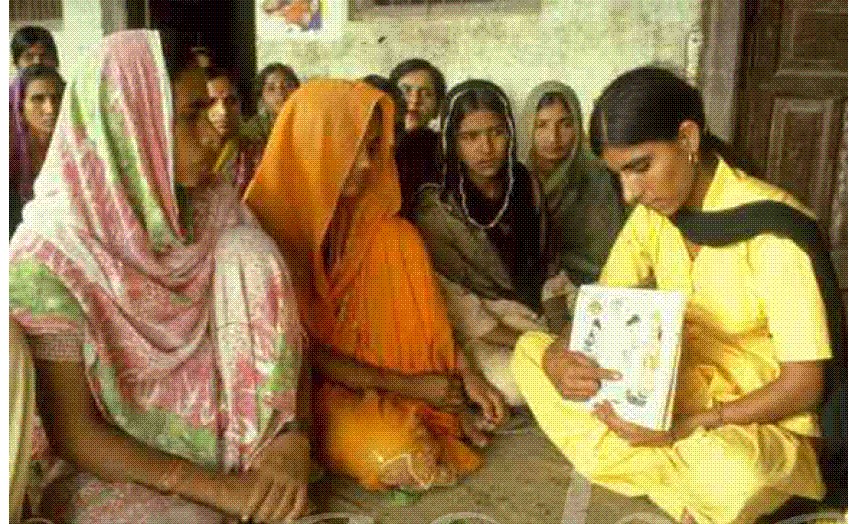We need a systemic reset that recognizes social work as a professional discipline essential to public welfare

Working in the social impact sector has, paradoxically, become a privilege. The irony is hard to miss—an industry built to advance justice and equality now largely belongs to those who can afford to work for less. What was once a calling rooted in compassion and empathy is today a space that quietly pushes out the very people who understand hardship, resilience, and survival.
I’ve spent nearly two decades in this field before stepping into academia as an Assistant Professor of Social Work. Those years shaped me profoundly. I stayed not because it was easy or financially secure, but because I saw it as my vocation—a calling to serve, to heal, to act. Compassion and empathy were not just words; they were the currency of meaning that kept me going when systems didn’t. But even conviction has its limits when the structures around you are designed to exhaust, not empower.
Let’s be honest—the sector runs on passion, not paychecks. But passion doesn’t pay rent. Most social workers earn less than what’s considered a living wage. Many are on contractual terms, without provident fund, health insurance, or any real job security. You could be leading programmes for children in conflict with the law, counselling survivors of abuse, or coordinating community development projects, and still not know if you’ll have work next year.
That’s not only unsustainable—it’s exploitative. The social impact sector survives because so many people silently subsidize it with their own sacrifices—emotionally, mentally, and financially.
Students today weigh their options carefully. They see the insecurity, the burnout, and the lack of institutional respect that social workers face. And they walk away.
Even in the government space, the picture is grim. Most roles for social workers—under schemes like Mission Vatsalya, child protection units, or rehabilitation homes—are contractual, with meagre pay and zero benefits. Some earn less than daily-wage workers. Imagine counselling a survivor of sexual assault all day, coordinating with police and courts, writing lengthy reports—and earning Rs15,000 a month with no assurance of renewal. That’s not empowerment; that’s survival with a smile.
There’s another silent crisis that few talk about—burnout. Social work is not just physically demanding; it’s emotionally gruelling. Many of us in the field work daily with survivors of child abuse, domestic violence, HIV, human trafficking, and other deep traumas. We absorb their pain, bear witness to their suffering, and yet must remain composed, professional, and functional.
Over time, that takes a toll. It’s called vicarious trauma—the cumulative emotional residue left behind after helping others in distress. It’s what happens when compassion becomes fatigue.
The signs are everywhere: social workers breaking down after case reviews, waking up to panic attacks, or feeling numb where empathy once lived. Many carry secondary trauma from hearing stories of abuse and loss repeatedly, without access to mental health support or structured supervision.
The irony? The very people trained to heal others are often the least cared for. NGOs rarely have budgets for therapy or debriefing. Government departments treat emotional exhaustion as weakness.
Unlike psychology or law, social work remains grossly under-recognized in Goa—and across India. Despite being a distinct discipline with its own ethical framework, theory base, and research tradition, it is often dismissed as charity work. This ignorance dilutes its professional identity and undermines its legitimacy.
Organizations continue to hire generalists—people who can “manage projects”—over trained professionals who understand human systems, trauma-informed care, and rights-based approaches. That’s like hiring a layperson to perform surgery because “they’re passionate about health.” The results are predictably shallow: short-term projects, donor-driven targets, and tokenistic outcomes.
Meanwhile, trained social workers—those who have studied intervention models, policy frameworks, and human behaviour—are forced to compromise, shift careers, or join corporate CSR departments to survive.
It’s heartbreaking, but true: the social impact sector often demands sainthood from its workers. Long hours, uncertain pay, emotional overload—it’s all justified under the banner of “service.” But service without sustainability breeds silent suffering.
For women, the burden is heavier. Financial independence, safety, and housing security are non-negotiables. Yet many women in the field are expected to work in unsafe conditions, travel to remote areas, and juggle emotional labour at home and work—without even basic protections. The sector preaches empowerment but practises precarity.
This toxic pattern ensures that only those with family wealth, spousal support, or inherited privilege can afford to “stay.” The result is predictable: a gated community of changemakers who speak about the marginalized, not from them. The solution isn’t charity—it’s change. We need a systemic reset that recognizes social work as a professional discipline essential to public welfare.
Fair pay and stability: Governments must regularize social work positions with proper pay scales, benefits, and tenure security. NGOs and CSR bodies must stop normalizing underpayment as “passion work.”
Mental health support: Every social organization should budget for counselling, debriefing, and supervision for their teams. Emotional well-being must be treated as professional hygiene, not luxury.
Academic strengthening: Universities must create strong linkages between academia, policy, and practice. Students should graduate knowing not only how to serve, but how to demand fair treatment for themselves.
Public awareness: Society needs to understand that social workers aren’t volunteers—they’re trained professionals, as vital as doctors, teachers, or psychologists.
Fair pay, mental health care, and institutional respect are not luxuries—they are lifelines. Without them, the sector will continue to lose its most passionate, grounded, and resilient voices.
Social work isn’t just about empathy—it’s about endurance. But endurance without support becomes exploitation. If we truly want a just and inclusive society, we must start by valuing those who hold it together. Because when the change-makers burn out and can’t afford to stay, the change itself dies quietly with them.